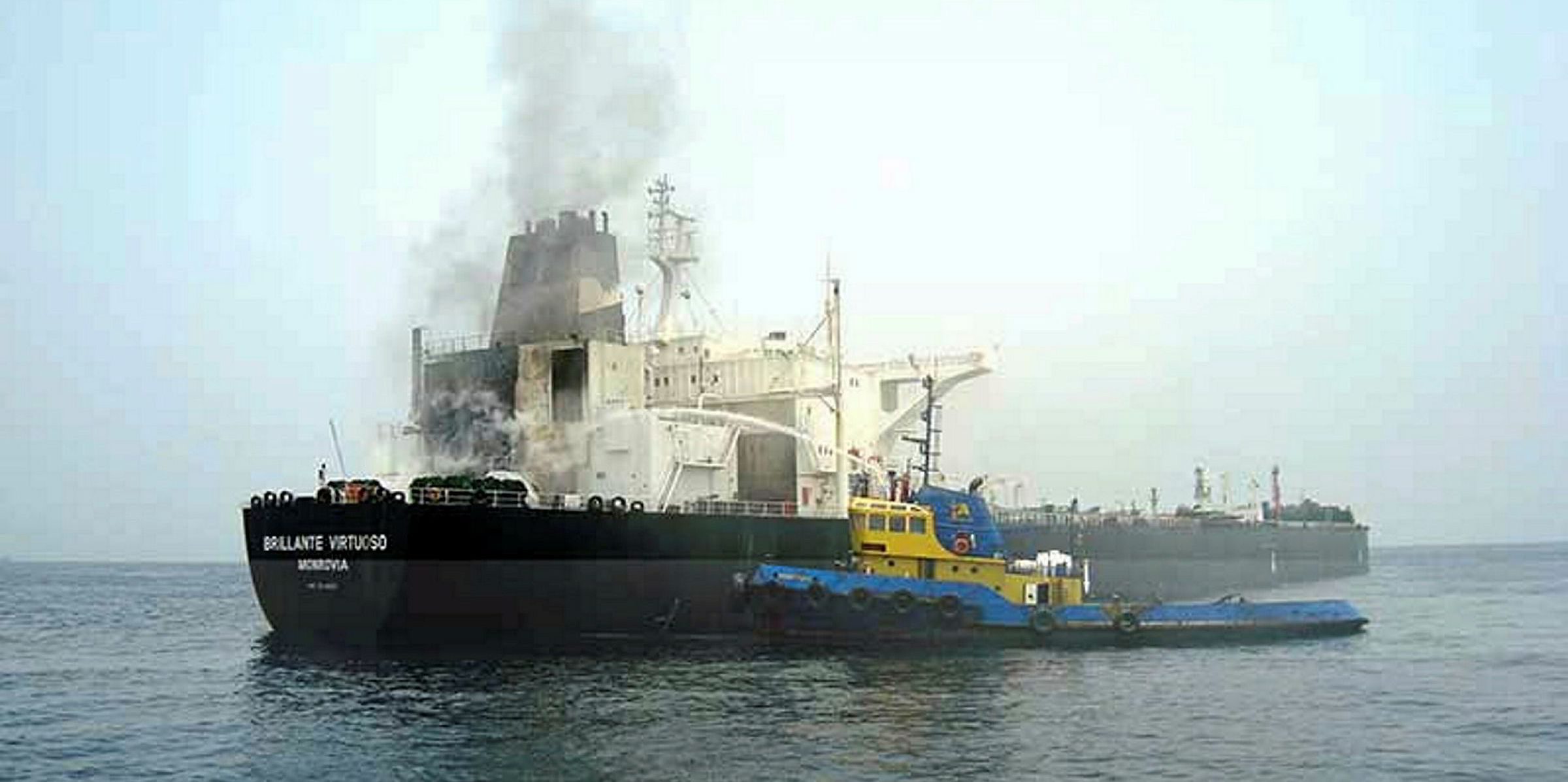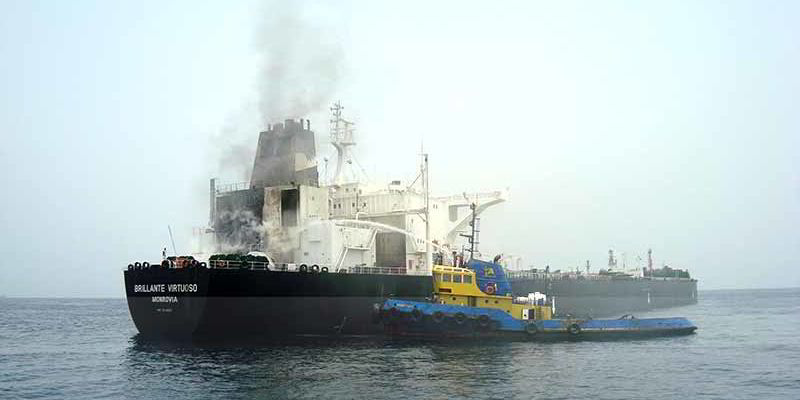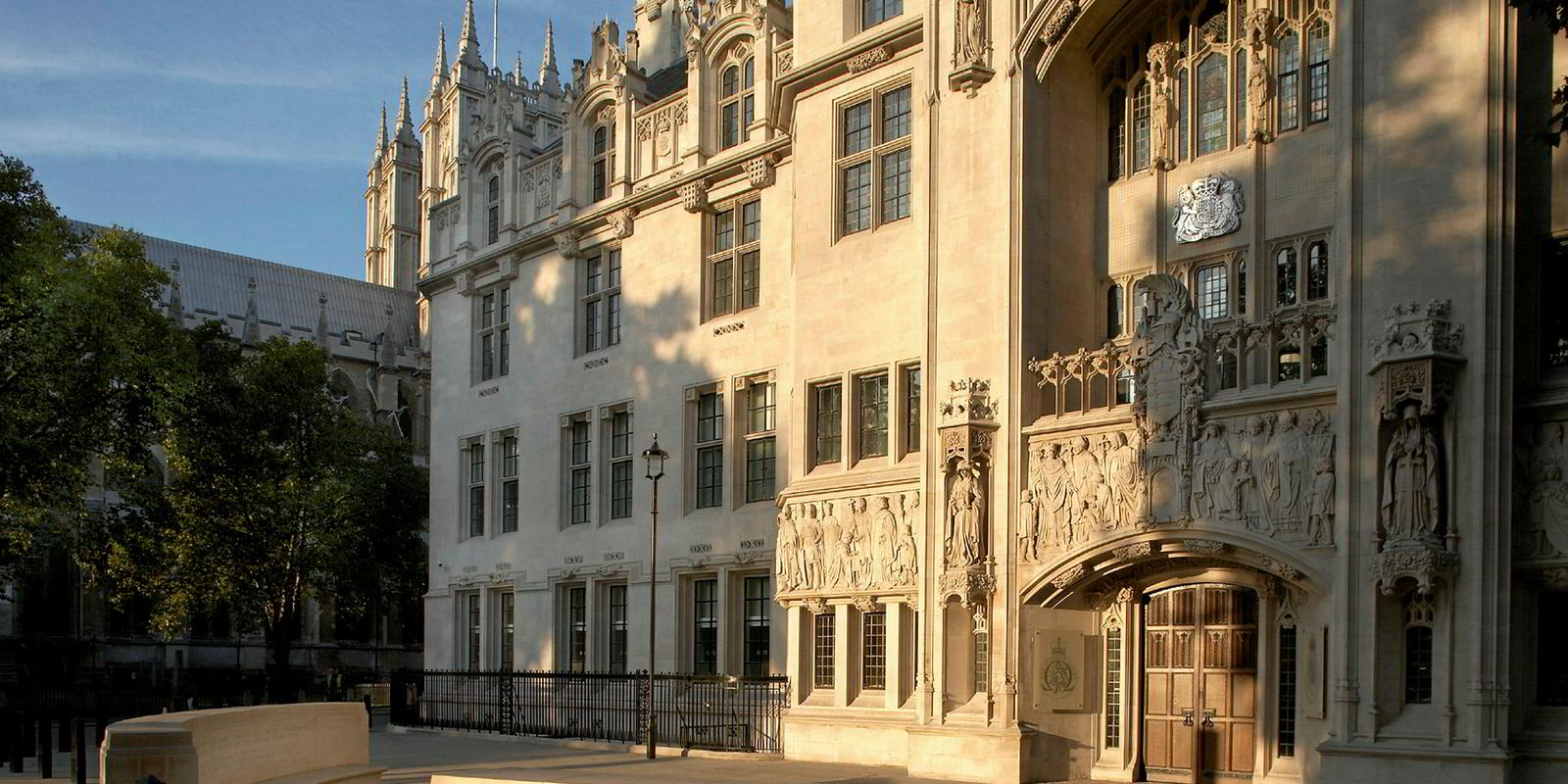A UK court has ruled that the identity of a whistleblower in the controversial $77m Brillante Virtuoso scuttling case can be revealed, despite fears he will be killed.
The case concerns a constructive total loss (CTL) claim under a war risks policy for the 150,000-dwt tanker (built 1992), which is being defended by Lloyds' underwriters on the grounds that its owner conspired to blow it up.
The claim for an insurance payout by owner Suez Fortune Investments, linked to Marios Iliopoulos, was struck out in the UK high court in 2016 for failure to provide an electronic archive as evidence.
But a second claim by Piraeus Bank, the vessel’s mortgagee, is still being pursued, with a trial set to start in February, and last for many weeks.
The war risk underwriters Talbot Underwriting and others, as defendants, have now asked for an order that a witness in the action, presently known by the pseudonym Theo Blake, should be identified by his real name.
Police fighting revelation
This name is known to the defendants but not to Piraeus Bank, which supports the defendants’ application.
Theo Blake and the City of London Police fought the attempt, however.
The vessel became a CTL following a fire off Aden in July 2011, deliberately started in the purifier room by means of an explosive incendiary device.
The bank says that the fire was caused by the hostile act of third parties, said to be renegade members of the Yemeni navy or coast guard who planned to take the vessel to Somalia and share in a ransom with Somali pirates.
Two whistleblowers involved
The defendants agree that those who boarded the vessel and caused the fire were indeed Yemeni, but say that they were acting as part of a conspiracy with the owner, with the assistance of a local salvor.
Two whistleblowers will be relied on by the insurers.
The other is currently known as “X” and claims personal knowledge of the alleged conspiracy to scuttle.
He has not made a statement but has spoken to a claims investigator who will give hearsay evidence of what X told him. The second whistleblower is Theo Blake.
Blake has been assisting the City of London Police with a criminal investigation into the loss of the vessel. No charges have yet been brought.
The bank says much of his evidence is hearsay or opinion.
Justice Andrew Teare said: "The reason why the defendants wish to be able to reveal the true identity of Theo Blake to the second claimant is that they do not wish the credibility of Theo Blake to be limited by his anonymity."
Meanwhile, the bank wants to investigate his credibility itself.
Threats made to others
Blake claims there is a need to keep his identity secret and he also fears that there will be threats to his mother if his identity is revealed.
He has cited threats to others, in particular those alleged to have been made to an able seaman, a Mr Marquez, by the owner and by the chief engineer that he will be killed if he tells what happened on the vessel, and threats to X that he will “end up in the ground”.
The court was told that in Greece in January 2018, calls were made to an address known only to Theo Blake’s immediate family and the caller asked for Blake by his real name.
Blake believes that people were sent in cars to “grab” him. As a result of these events the police, who deemed these events to be a credible threat to Blake and his family, have removed him to the UK, where he resides at a location known only to the police.
While the defendants do not dispute that there is a credible risk to the safety of Blake, the bank does not accept that there have been any threats.
The ruling said Blake and the police had to show that anonymity is necessary to ensure the safety of Blake and his mother.
The defendants and the bank agreed that that cannot be shown because, they submit, his identity is already known to those whom from he is said to be at risk and it can, in any event, be determined from the biographical details of Theo Blake in his statement.
Peril in Greece
That his identity is already known to those who would, it is alleged, do him harm is apparent from the events in Greece in January 2018. Those who called by telephone asked for him by name, the ruling said.
"It is not the revelation of Theo Blake’s true identity which enhances the risk but knowledge of the contents of his witness statement, something which is not sought to be restricted," Teare added.
"I have given this application careful and anxious thought. That is obviously appropriate when a risk to life is said to be engaged," he added.
But he said: "I find it impossible to resist the conclusion that revealing his true identity to the second claimant will not give rise to a risk to Theo Blake over and above that which already exists. For that reason I am unable to find that the anonymity of Theo Blake is necessary to avoid harm to him or his mother."
Owner questioned by police
Talbot and Iliopoulos’ differing version of events around the alleged pirate attack never formed part of the 2016 judgment. Instead the legal wrangle centred on the issue of non-disclosure rather than liability for the loss.
The 2016 ruling revealed that Iliopoulos was arrested by City of London Police as he left the Rolls Building in London that April.
He was questioned over insurance fraud before being released on bail.
“In evaluating Mr Iliopoulos' evidence I have completely ignored those subsequent events,” Justice Flaux said at the time.
The judge also called the Greek owner “an extremely unsatisfactory witness.”
“He was evasive and non-responsive and, on occasions, aggressive and threatening. Overall, I formed a very clear view that in large measure he was not telling the truth,” he added.
The vessel had been insured by the owner for $55m, although its market valuation at the time of the casualty in a depressed tanker market was closer to $10.2m, a court had earlier heard.
The ship was eventually sold by the owner for demolition for $700,000.





